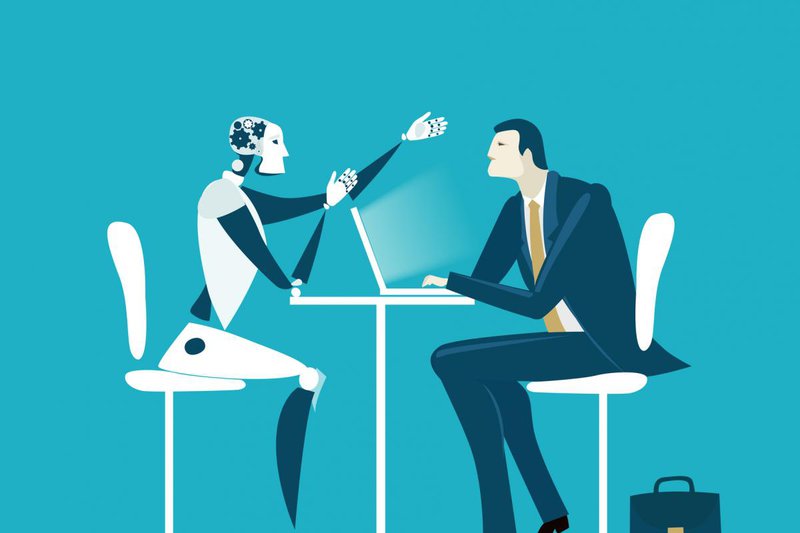How to Incorporate AI Into Human Resources and Recruitment

Are you struggling to keep up with the demands of human resources and recruitment? Incorporating AI into your processes can revolutionize the way you operate.
With AI, you can streamline your hiring process, improve candidate screening, and enhance employee engagement.
In this article, we will explore the benefits of AI in HR and recruitment, guide you through understanding AI technologies, and provide key considerations before implementation.
Get ready to take your HR and recruitment to the next level with AI.
Key Takeaways
- AI streamlines hiring processes and automates time-consuming tasks
- AI ensures fair and unbiased selection processes
- AI identifies the best candidates by analyzing skills, experience, and qualifications
- AI assists in predicting employee turnover, identifying training needs, and personalizing onboarding processes
The Benefits of AI in HR and Recruitment
You’ll be surprised by the numerous benefits that AI brings to HR and recruitment.
AI applications in the workforce have revolutionized hiring processes, making them more efficient and effective. With AI, you can automate time-consuming tasks like resume screening and candidate shortlisting. This not only saves you valuable time but also ensures a fair and unbiased selection process.
AI-driven hiring processes also help identify the best candidates by analyzing their skills, experience, and qualifications. By using AI algorithms, you can match job requirements with candidate profiles, significantly improving the quality of hires.
Additionally, AI can assist in predicting employee turnover, identifying training needs, and even personalizing the onboarding process.
Overall, incorporating AI into HR and recruitment can streamline operations, enhance decision-making, and ultimately lead to better outcomes for your organization.
Understanding AI Technologies for HR and Recruitment
Understanding the role of AI technologies in HR and recruitment can greatly enhance efficiency and effectiveness in the hiring process. By implementing AI strategies, you can streamline various aspects of recruitment, from sourcing candidates to evaluating resumes and conducting interviews.
AI tools and software for recruitment can automate repetitive tasks, such as resume screening and candidate matching, allowing HR professionals to focus on more strategic and meaningful work. These tools use advanced algorithms to analyze large volumes of data, identify patterns, and make predictions, helping you make more informed hiring decisions.
AI can also assist in eliminating biases in the hiring process by analyzing candidate qualifications objectively. By embracing AI technologies, you can improve the speed, accuracy, and fairness of your recruitment efforts, ultimately leading to better hiring outcomes.
Key Considerations Before Implementing AI in HR and Recruitment
Before diving into the implementation of AI in HR and recruitment, there are three important considerations you need to keep in mind.
First, ethical data handling is crucial to ensure the privacy and security of the data you collect and analyze.
Second, providing adequate training and education to your team is essential to maximize the benefits of AI and avoid potential pitfalls.
Lastly, it’s important to understand the impact AI will have on job roles within your organization and how to properly manage and adapt to these changes.
Ethical Data Handling
To ensure ethical data handling in AI-driven human resources and recruitment, it’s important to establish strict privacy protocols.
Data security is crucial in protecting sensitive information about job candidates and employees. Implementing strong encryption and access controls will help prevent unauthorized access to personal data.
Additionally, it’s essential to address algorithm bias, which can lead to discriminatory practices in hiring and promotion decisions. Regular audits and reviews of AI algorithms can help identify and rectify any biases present in the system.
Ensuring diverse and inclusive training data sets can also help minimize bias.
Training and Education
Training and education are crucial for equipping individuals with necessary skills and knowledge to adapt to new technologies and industry developments. In today’s rapidly changing world, continuous learning is essential to stay competitive and relevant. Employers recognize the importance of upskilling and are investing in programs that promote ongoing education. These initiatives provide opportunities to expand skillsets and stay ahead of the curve.
Workshops, online courses, and mentorship programs are some ways employers support professional development. Actively participating in these programs enhances abilities, increases value as an employee, and positions individuals for future success. Embracing the opportunity to continuously learn and upskill empowers individuals to thrive in an ever-evolving workplace.
Impact on Job Roles
The impact of new technologies and industry developments on job roles can be significant. With the rise of job automation and workforce transformation, many traditional job roles are being reshaped or even replaced entirely.
Artificial intelligence and automation technologies are streamlining processes and increasing efficiency in various industries, leading to a shift in the skills and tasks required in the workforce. As a result, workers are finding themselves needing to adapt and learn new skills to remain relevant in the evolving job market.
Job automation allows for repetitive and mundane tasks to be handled by machines, freeing up human workers to focus on more complex and creative tasks. It is crucial for individuals to embrace continuous learning and upskilling to stay competitive in this rapidly changing job landscape.
Steps to Implement AI in HR and Recruitment Processes
You can start implementing AI in your HR and recruitment processes by first identifying the areas where it can be most beneficial.
One of the key challenges in implementing AI in HR and recruitment is finding the right AI tools and resources. There are several AI tools available that can automate various tasks such as resume screening, candidate sourcing, and interview scheduling. These tools can save time and improve efficiency in the recruitment process. However, it is important to choose the right tools that align with your organization’s needs and goals.
Additionally, implementing AI can also require training and upskilling of HR professionals to effectively utilize these tools. It is crucial to have a well-defined implementation plan and strategy to overcome these challenges and successfully integrate AI into your HR and recruitment processes.
Training and Upskilling for AI Integration in HR and Recruitment
By upskilling HR professionals, you can effectively integrate AI into your HR and recruitment processes. Implementing upskilling strategies is crucial to ensure that your team is equipped with the necessary skills and knowledge to handle AI technologies.
By providing training on AI tools and techniques, you enable your HR professionals to leverage AI for tasks such as resume screening, candidate sourcing, and employee engagement. Upskilling also helps in understanding the potential benefits and limitations of AI in HR, allowing you to make informed decisions.
Additionally, it fosters a culture of continuous learning and professional growth within your HR team. This, in turn, enhances employee engagement as they feel valued and empowered with new skills.
Overall, upskilling HR professionals is a vital step towards successfully integrating AI into your HR and recruitment processes.
Overcoming Challenges in AI Adoption for HR and Recruitment
In this discussion, you will explore the challenges of adopting AI in HR and recruitment. You will focus on the skill gap and training required for successful integration.
You will also delve into the ethical considerations that arise with AI implementation. This includes examining issues such as bias and discrimination that may occur when using AI in HR processes.
Additionally, you will examine the data privacy concerns that organizations must address. This is to ensure the protection of sensitive employee and candidate information.
Overall, this discussion will provide a comprehensive overview of the challenges and considerations involved in adopting AI in HR and recruitment.
Skill Gap and Training
To address the skill gap in your workforce, consider implementing AI technology for training and development purposes. AI can play a crucial role in skill assessment and employee development, helping you identify gaps and provide targeted training programs. By leveraging AI algorithms, you can assess the current skill levels of your employees and determine areas where improvement is needed. This allows you to create personalized development plans tailored to each employee’s needs. AI-powered training platforms can provide interactive and engaging learning experiences, utilizing techniques like gamification and adaptive learning. Below is a table showcasing the benefits of incorporating AI into skill assessment and employee development:
| Benefits of AI in Training and Development |
|---|
| Improved skill assessment accuracy |
| Personalized development plans |
| Interactive and engaging learning experiences |
| Continuous monitoring and feedback |
Ethical Considerations
Consider the ethical implications of using AI technology in your training and development programs to ensure fairness and accountability in skill assessment and employee development.
AI has the potential to revolutionize HR processes, but it also raises important ethical considerations. Here are some points to keep in mind:
- Ethical decision making: AI algorithms should be programmed to prioritize ethical decision making, considering factors such as diversity, inclusivity, and fairness in skill assessment and employee development.
- Bias detection: AI can help identify and mitigate biases in the training and development programs. It can analyze patterns and trends to ensure that assessments are fair and unbiased.
- Transparency: It is important to have transparency in the AI algorithms used for skill assessment and development. Employees should understand how their skills are being evaluated and be provided with opportunities to provide feedback or challenge the results.
Data Privacy Concerns
Make sure you prioritize data privacy in your AI-powered training and development programs. Implement secure data storage and encryption methods to address the critical concern of data security in the age of AI and ensure legal compliance.
With the vast amount of data being collected and analyzed, it is essential to protect sensitive information from unauthorized access and potential breaches. Implement robust data storage practices, such as encryption and secure servers, to safeguard personal and confidential data.
Additionally, it is crucial to comply with legal regulations governing data privacy, such as the General Data Protection Regulation (GDPR). By doing so, you can build trust with your employees and candidates, knowing that their data is being handled responsibly and securely.
Best Practices for Successful AI Integration in HR and Recruitment
Implementing AI into HR and recruitment requires identifying key areas for integration and developing strategies that align with best practices. To ensure a successful implementation, consider the following:
- Understand the specific needs of your HR and recruitment processes: Determine which areas can benefit most from AI technology, such as resume screening, candidate matching, or employee onboarding.
- Choose the right AI solution: Research and evaluate different AI tools and platforms to find one that aligns with your organization’s requirements and goals.
- Train your team: Provide proper training and resources to HR professionals and recruiters to effectively utilize AI tools and understand their capabilities.
Frequently Asked Questions
What Are the Potential Ethical Concerns Associated With Incorporating AI Into Human Resources and Recruitment?
When incorporating AI into HR and recruitment, potential ethical concerns arise, particularly regarding bias detection. AI algorithms may inadvertently perpetuate biases, leading to unfair hiring practices and discrimination.
How Can AI Be Used to Improve Diversity and Inclusion in the Hiring Process?
To improve diversity and inclusion in the hiring process, AI algorithms can be used. They help with bias mitigation, ensuring inclusive hiring practices, and improving representation. Algorithmic transparency is essential for AI fairness.
Can AI Accurately Predict Employee Performance and Potential for Growth?
AI has the potential to accurately predict employee performance and potential for growth through talent assessment and employee evaluation. It can analyze data to identify patterns and make informed decisions about individuals’ abilities and future success.
What Are the Potential Legal Implications of Using AI in HR and Recruitment?
Potential legal implications of using AI in HR and recruitment include privacy concerns. AI systems must comply with data protection regulations and avoid discriminatory practices. It is essential to assess and address these issues to ensure fair and ethical use of AI.
How Can AI Be Used to Improve Employee Engagement and Retention in an Organization?
To improve employee engagement and retention, AI can be used to gather feedback from employees and provide personalized talent development programs. It helps tailor strategies for each employee, leading to better job satisfaction and increased loyalty.







